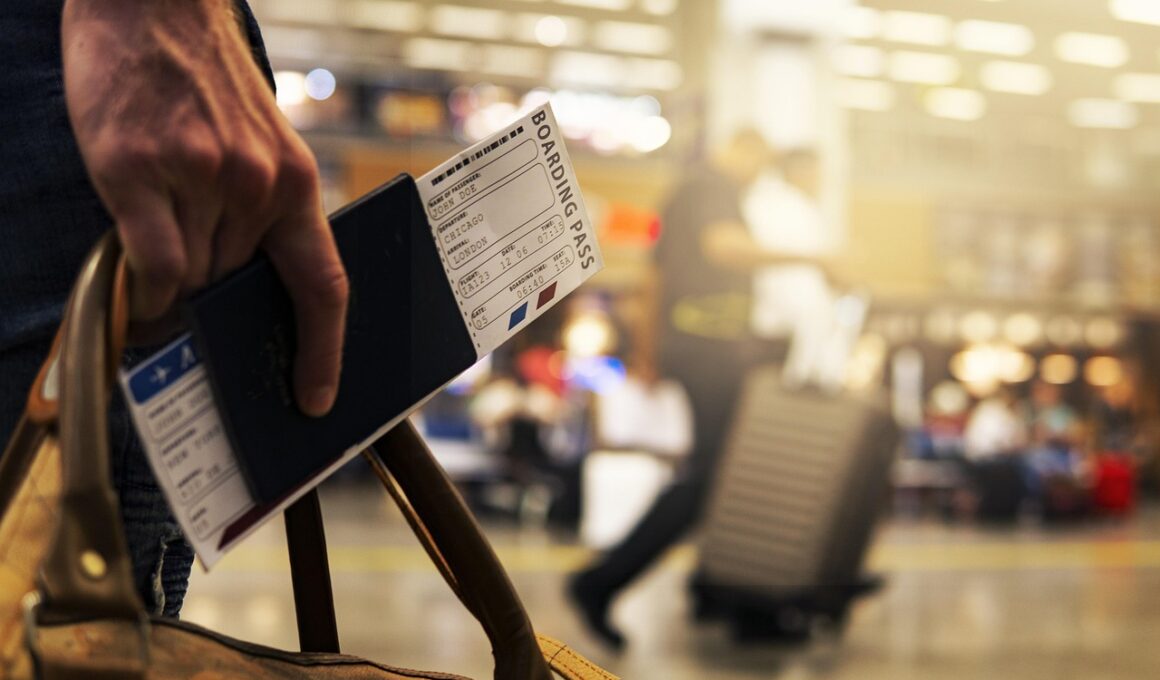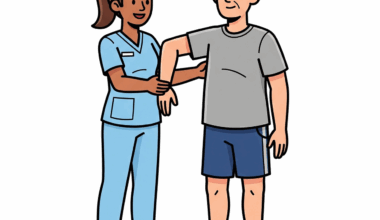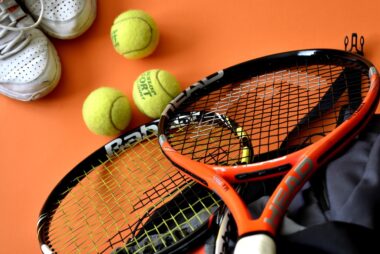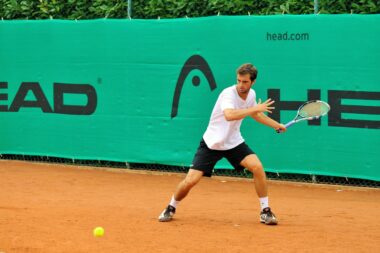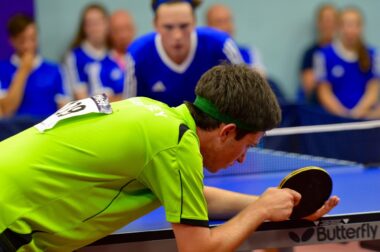Maintaining Tennis Fitness During Business Trips
Business trips can disrupt a tennis player’s fitness routine, but staying committed is essential. The first step is planning your travel workouts in advance. Researching the hotel’s amenities is a great start. Check if they have a gym or if there are courts nearby. Utilize applications or online platforms to identify fitness hubs or running trails. Always pack your workout gear, including tennis shoes and comfortable clothing. Simple tools like resistance bands are easy to carry and can effectively maintain your strength training. Scheduling time for workouts during your trip should be prioritized, just like any business meeting. Early mornings are generally quieter for workouts and can set a productive tone for the day. Incorporating mobility exercises or stretching routines into your schedule can support flexibility. Combine travel fitness with enjoyment by exploring local parks or tennis clubs. Engaging with the local tennis community can provide fresh perspectives and potential partners. Using savvy time management is crucial. Aim for at least 30 minutes daily and focus on high-intensity workouts, which maximize benefits in a shorter time. Consistency during trips reflects your commitment to performance and overall health.
Nutrition While Traveling
Nutrition plays a significant role in maintaining your fitness while traveling. Make conscious meal choices that support your tennis performance. Start by staying hydrated, especially on flights where dehydration is common. Carry a reusable water bottle to refill as needed. Opt for nutrient-dense snacks like nuts, fruits, or protein bars during travels. This will help sustain energy and prevent unhealthy eating impulses. When dining out, aim for meals high in lean protein and complex carbohydrates. Quality meals can fuel your workouts and recovery. Communicate dietary preferences or restrictions when booking meals for business events. If options seem limited, don’t hesitate to seek alternative venues nearby that offer better meal choices. Familiarizing with local grocery stores can also be beneficial, as they often carry healthy food items. Consider meal prepping if you stay in accommodations with cooking facilities. Preparing light meals ensures you consume nutritious food at your convenience. Additionally, avoid excessive alcohol, as it can derail fitness goals. Balancing social activities with mindful eating is essential for both business success and personal fitness. Remember, your diet not only influences energy but also recovery and overall wellbeing.
Maximizing your productivity includes making time for mental fitness, which is equally important for tennis performance. Engaging in mindfulness or meditation can manage stress during busy schedules. Research has shown that mental clarity can enhance performance on the court. Even 5-10 minutes a day focusing on breathwork can create significant changes in mental health. Additionally, engaging in breathing exercises can alleviate anxiety associated with business trips. Reviewing your tennis goals while traveling can also keep motivation high. Create vision boards or jot down progress in a journal. These practices will help you remain mentally connected to your fitness aims. Moreover, integrating relaxation techniques into your routine can boost recovery. Techniques might include guided imagery, yoga, or progressive muscle relaxation. This can facilitate a better night’s sleep, which is crucial for recovery. Finding local yoga classes can provide a unique workout option while connecting with new communities. Adopting these strategies will not only enhance your mental strength but can positively impact your tennis performance. Keeping an open mindset to new experiences can lead to growth both personally and professionally. In the end, balancing business with tennis commitments nurtures a more fulfilling lifestyle.
Finding Local Facilities
Knowing where to find local tennis facilities or sports complexes can be a game-changer during business trips. Before embarking, utilize online resources to locate nearby courts, gyms, or sports centers. Websites like Tennis.com and USTA can help identify facilities based on location. Often, local tennis clubs provide programs catering to different skill levels, allowing one to maintain practice routines. Reaching out to local clubs via social media can facilitate connections with players in the area. This creates opportunities for practice matches or simply to gain insights into local tennis culture. Whether joining a local session or hitting with local players, it ignites an element of competition. Many facilities offer day passes or temporary memberships for visitors, which is a convenient option. Capture these experiences by documenting your practices or games. Regular outings improve not just your physical ability but also your adaptability on the court. Traveling doesn’t have to mean sacrificing practice time; instead, think of it as an opportunity to broaden your experiences. Approach every business trip as an opportunity for networking, both professionally and athletically.
Incorporating flexibility into your schedule also extends to your training regimen. Design training sessions that can be easily adapted based on available resources. For example, if you don’t have access to a court, simulate tennis movements during a workout. Cardio-based activities like jogging or cycling can maintain fitness levels. Consider bodyweight exercises focusing on muscle maintenance, such as push-ups and squats—ideal for hotel rooms. Resistance training using resistance bands or your body weight can be effective without needing specialized equipment. Moreover, circuit training can keep workouts efficient and engaging. Consider various combinations of exercises to work on agility, endurance, and strength, focusing on specific muscles used in tennis. These exercises enhance your performance during matches and help mitigate injuries. Aim for an exciting workout by integrating diverse formats, keeping motivation high. After a session, remember to cool down and stretch those muscles to maintain flexibility. This is especially useful after long periods of travel. The focus should be on remaining active and engaged in your fitness journey. Every workout session, however small, contributes to the overarching goal of enhancing your tennis performance.
Recovery Techniques
The recovery process shouldn’t be overlooked while traveling. Prioritize adequate sleep, as it’s vital to muscle recovery. Poor sleep may inhibit performance and focus. Quality sleep helps you retain energy for both business engagements and physical activity. Maintain a comfortable sleeping environment—this could mean investing in sleep masks or earplugs during travels. Post-workout recovery techniques are equally essential. Stretching and foam rolling can alleviate discomfort after workouts or matches. Allocate time for these practices within your busy itinerary to avoid stiffness. It’s also wise to invest in a massage or spa treatment while traveling, especially after intensive matches or workouts. Many hotels offer wellness services; taking advantage of these can facilitate recovery. Similarly, considering yoga sessions can offer passive stretching benefits, boosting flexibility. Balancing rest days is pivotal; allowing your muscles recovery time prevents burnout. Additionally, including nutritious ingredients like omega-3 rich foods can enhance joint recovery. Lastly, remain aware of how your body feels physically. Adjustment of your routine may be necessary if you notice fatigue. Prioritizing recovery not only supports your fitness goals but also positions you for optimal performance on the court.
Final thoughts highlight the significance of adaptability in maintaining tennis fitness during business travel. Flexibility in adjusting routines and schedules is crucial for success. Whether finding local facilities or ensuring proper nutrition, every effort counts. Schedule workouts with the same diligence as business meetings to maintain your routine. Consider incorporating tennis drills into travel workouts that familiarize you with match situations and conditions. Networking with fellow tennis enthusiasts can provide new training insights and motivation. When on the road, your travel mindset should shift from being a disruption to an opportunity for growth. Approach challenges with creativity—there are always ways to stay active. Encourage a balance between work and physical activity as it nurtures both mental and physical health. Keeping fit on the go enhances your overall travel experience and promotes longevity in your sport. Remember that your dedication to tennis is a reflection of your commitment to health and self-improvement. Keep pushing forward, knowing that each session contributes to long-term success. Embrace the travel journey as part of your athletic development, setting a new standard for tennis players who seek continual improvement.

